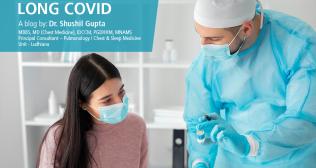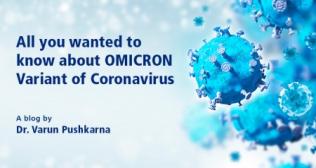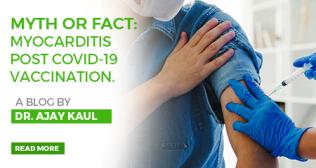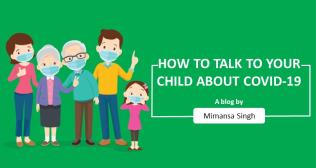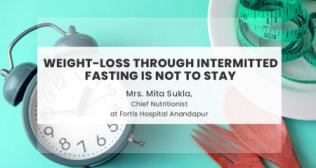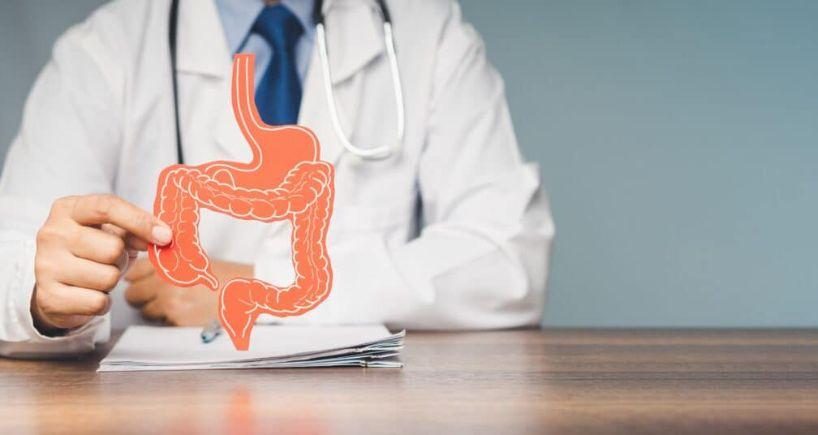
Ulcerative Colitis: Symptoms and Causes
Ulcerative colitis is a form of Inflammatory bowel disease, a chronic inflammatory disease of the gastrointestinal tract. The other inflammatory bowel disease is Crohn’s disease that leads to chronic inflammation of the intestines. However, the Crohn's disease can cause inflammation in any part of the digestive system whereas the ulcerative colitis occurs in the colon and rectum and leads to inflammation in the inner lining of the large intestine. The prevalence of ulcerative colitis was estimated around 5 million cases worldwide in 2023.
What is Ulcerative Colitis?
Ulcerative colitis, a type of inflammatory bowel condition caused due to inflammation and ulcers on the inner lining of the large intestine. There are four types of ulcerative colitis such as ulcerative proctitis, proctosigmoiditis, left-sided or distal colitis and pancolitis. Ulcerative colitis can occur at any age but it’s more likely in people between the ages of 15- to 30-year-old.
Ulcerative colitis, if left untreated increases the risk of colon cancer, especially in people who have this condition for eight or more years. Ulcerative colitis can also lead to Toxic Megacolon, a rare complication when the colon becomes englarged and swollen.
As ulcerative colitis is chronic condition, people with ulcerative colitis (UC) are given medications to treat the inflammation. However, the treatment and prognosis depend on the severity and extent of the condition.
Ulcerative Colitis Symptoms
The symptoms of ulcerative colitis can differ in individuals and depends on the severity of the condition. Some mild symptoms of ulcerative colitis include diarrhoea, abdominal pain, and blood in the stool. As the condition progress to severe it can also manifest to loss of appetite, fatigue and weight loss. In the long term, chronic bleeding from the inflamed and ulcerated part of the intestinal tissue can also lead to reduction in red blood cells.
In children affected by ulcerative colitis typically grows slower than normal. Additionally, though less common, people diagnosed with ulcerative colitis can experience problems with their joints, skin, kidney or liver due to inflammation.
People diagnosed with ulcerative colitis may experience flare up at times. Ulcerative flare up occurs when the symptoms such as diarrhea, abdominal pain and rectal pain returns after not having for a certain period. Ulcerative colitis remission is a period when symptoms of ulcerative colitis may not appear or reduced. This remission can be due to intake of ulcerative colitis medication that works to reduce or manage the inflammation of the colon.
Frequent diarrhea: this is among the most common symptoms of ulcerative colitis. People with UC can experience frequent diarrhea.
Rectal bleeding: Rectal bleeding may also present as a symptom in people with ulcerative colitis. The bleeding begins from the ulcers that have developed in the lining of the rectum.
Abdominal Pain: Besides diarrhea, ulcerative colitis may also lead to abdominal pain and cramping. People diagnosed with ulcerative colitis can experience the pain at inflammation location in the colon.
Weight Loss: People with ulcerative colitis may also experience weight loss due to difficulty in nutrient absorption from the diet they consume.
Causes of Ulcerative Colitis
Ulcerative colitis is an autoimmune condition that means your immune system is attacking your body. The reason behind ulcerative colitis is unknown, however, it is likely depending on genetic, and immune response. Environmental factors also play a role in the development of ulcerative colitis.
- Genetics: Those with family history of ulcerative colitis are at increased risk for ulcerative colitis.
- Abnormal Immune response: Ulcerative colitis is a considered an autoimmune condition where your immune system attacks the gut tissue and this leads to chronic inflammation in the rectum and colon,
- Environmental factors: Certain environmental factors such as diet, stress, infections and exposure to certain medication may also worsen the symptoms of ulcerative colitis.
What are the types of ulcerative colitis?
There are four types of ulcerative colitis such as Ulcerative proctitis, proctosigmoiditis, Left-sided or distal colitis, and pancolitis. These types are based on the inflammation affected area within the colon.
Ulcerative proctitis
Ulcerative proctitis is a form of ulcerative colitis, that begins in the rectum, lower part of the colon. The system shows up in the rectum region such as discomfort after having a bowel movement, and urgency to have a bowel movement.
Proctosigmoiditis
In Proctosigmoiditis, the inflammation extends to Sigmoid colon is a S-section of the large intestine that connected to the rectum.
Left-sided or distal colitis:
Left sided, also called distal colitis is a type of ulcerative colitis that affects the left side of the colon, including the sigmoid colon and descending colon.
Pancolitis
In pancolitis, the inflammation affects the entire colon, and symptoms can be present in the form of severe diarrhea, abdominal pain, and weight loss.
Conclusion
Ulcerative colitis is a chronic inflammatory condition that affects the digestive tract. The exact cause of ulcerative colitis is unknown; however, genetics, abnormal immune response, and environmental factors can contribute to the development of ulcerative colitis. The symptoms of ulcerative colitis are diarrhea, abdominal pain and cramping, rectal bleeding (passing blood with the stool) and weight loss if the conditions progressed. There are different types of ulcerative colitis that based on the affected area.
Popular Searches :
Hospitals: Cancer Hospital in Delhi | Best Heart Hospital in Delhi | Hospital in Amritsar | Hospital in Ludhiana | Hospitals in Mohali | Hospital in Faridabad | Hospitals in Gurgaon | Best Hospital in Jaipur | Hospitals in Greater Noida | Hospitals in Noida | Best Kidney Hospital in Kolkata | Best Hospital in Kolkata | Hospitals in Rajajinagar Bangalore | Hospitals in Richmond Road Bangalore | Hospitals in Nagarbhavi Bangalore | Hospital in Kalyan West | Hospitals in Mulund | Best Hospital in India | | Cardiology Hospital in India | Best Cancer Hospital in India | Best Cardiology Hospital in India | Best Oncology Hospital In India | Best Cancer Hospital in Delhi | Best Liver Transplant Hospital in India
Doctors: Dr. Rana Patir | Dr. Rajesh Benny | Dr. Rahul Bhargava | Dr. Jayant Arora | Dr. Anoop Misra | Dr. Manu Tiwari | Dr. Praveer Agarwal | Dr. Arup Ratan Dutta | Dr. Meenakshi Ahuja | Dr. Anoop Jhurani | Dr. Shivaji Basu | Dr. Subhash Jangid | Dr. Atul Mathur | Dr. Gurinder Bedi | Dr. Monika Wadhawan | Dr. Debasis Datta | Dr. Shrinivas Narayan | Dr. Praveen Gupta | Dr. Nitin Jha | Dr. Raghu Nagaraj | Dr. Ashok Seth | Dr. Sandeep Vaishya | Dr. Atul Mishra | Dr. Z S Meharwal | Dr. Ajay Bhalla | Dr. Atul Kumar Mittal | Dr. Arvind Kumar Khurana | Dr. Narayan Hulse | Dr. Samir Parikh | Dr. Amit Javed | Dr. Narayan Banerjee | Dr. Bimlesh Dhar Pandey | Dr. Arghya Chattopadhyay | Dr. G.R. Vijay Kumar | Dr Ashok Gupta | Dr. Gourdas Choudhuri | Dr. Sushrut Singh | Dr. N.C. Krishnamani | Dr. Atampreet Singh | Dr. Vivek Jawali | Dr. Sanjeev Gulati | Dr. Amite Pankaj Aggarwal | Dr. Ajay Kaul | Dr. Sunita Varma | Dr. Manoj Kumar Goel | Dr. R Muralidharan | Dr. Sushmita Roychowdhury | Dr. T.S. MAHANT | Dr. UDIPTA RAY | Dr. Aparna Jaswal | Dr. Ravul Jindal | Dr. Savyasachi Saxena | Dr. Ajay Kumar Kriplani | Dr. Nitesh Rohatgi | Dr. Anupam Jindal |
Specialties: Heart Lung Transplant | Orthopedic | Cardiology Interventional | Obstetrics & Gynaecology | Onco Radiation | Neurosurgery | Interventional Cardiology | Gastroenterologist in Jaipur | Neuro Physician | Gynecologist in Kolkata | Best Neurologist in India | Liver Transfer







